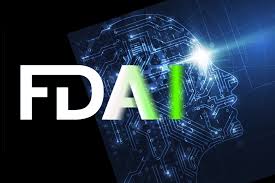
Breaking News
 How $21 TRILLION Went Missing From U.S. Tax Payers! -Catherine Austin Fitts FULL INTERVIEW
How $21 TRILLION Went Missing From U.S. Tax Payers! -Catherine Austin Fitts FULL INTERVIEW
 Barnum World Film Premiere - Phoenix
Barnum World Film Premiere - Phoenix
 Zelensky Confirms He Will Meet Putin For Peace Talk
Zelensky Confirms He Will Meet Putin For Peace Talk
 Watch: President Trump Blasts Media For Refusing to Report on 'Genocide' of White Farmers...
Watch: President Trump Blasts Media For Refusing to Report on 'Genocide' of White Farmers...
Top Tech News
 Cab-less truck glider leaps autonomously between road and rail
Cab-less truck glider leaps autonomously between road and rail
 Can Tesla DOJO Chips Pass Nvidia GPUs?
Can Tesla DOJO Chips Pass Nvidia GPUs?
 Iron-fortified lumber could be a greener alternative to steel beams
Iron-fortified lumber could be a greener alternative to steel beams
 One man, 856 venom hits, and the path to a universal snakebite cure
One man, 856 venom hits, and the path to a universal snakebite cure
 Dr. McCullough reveals cancer-fighting drug Big Pharma hopes you never hear about…
Dr. McCullough reveals cancer-fighting drug Big Pharma hopes you never hear about…
 EXCLUSIVE: Raytheon Whistleblower Who Exposed The Neutrino Earthquake Weapon In Antarctica...
EXCLUSIVE: Raytheon Whistleblower Who Exposed The Neutrino Earthquake Weapon In Antarctica...
 Doctors Say Injecting Gold Into Eyeballs Could Restore Lost Vision
Doctors Say Injecting Gold Into Eyeballs Could Restore Lost Vision
 Dark Matter: An 86-lb, 800-hp EV motor by Koenigsegg
Dark Matter: An 86-lb, 800-hp EV motor by Koenigsegg
 Spacetop puts a massive multi-window workspace in front of your eyes
Spacetop puts a massive multi-window workspace in front of your eyes
FDA To Deploy Artificial Intelligence Across Agency

FDA Commissioner Dr. Marty Makary has directed all FDA centers to immediately start using artificial intelligence (AI) and fully integrate it by the end of June, the FDA said in a May 8 statement.
By June 30, all centers will use what the agency described as a "common, secure generative AI system integrated with FDA's internal data platforms."
"I was blown away by the success of our first AI-assisted scientific review pilot," Makary said in a statement. "We need to value our scientists' time and reduce the amount of non-productive busywork that has historically consumed much of the review process. The agency-wide deployment of these capabilities holds tremendous promise in accelerating the review time for new therapies."
AI refers to computer systems that can carry out complex tasks typically performed by humans.
"AI can be generally described as a branch of computer science, statistics, and engineering that uses algorithms or models to perform tasks and exhibit behaviors such as learning, making decisions, and making predictions," FDA officials said in 2023.
Makary said on Thursday that past years have featured discussions on utilizing AI and that it's time to start using it to save time, with some tasks that once took days now taking mere minutes.
"We at the FDA now have to ask big questions that we've never asked before. Why does it take over 10 years for a new drug to come to market? Why are we not modernized with AI and other things? We've just completed our first AI-assisted scientific review for a product and that's just the beginning," he said earlier in the week on social media platform X.
The rollout across the FDA is being coordinated by Jeremy Walsh, Booz Allen Hamilton's former chief technologist, who was recently appointed as the agency's chief AI officer, and Sridhar Mantha, who previously led the Office of Business Informatics at the FDA's Center for Drug Evaluation and Research.
President Donald Trump has encouraged agencies to adopt wider use of AI, including through an executive order that said it is U.S. policy to "sustain and enhance America's global AI dominance in order to promote human flourishing, economic competitiveness, and national security."
An April memorandum from the White House said that agencies "must adopt a forward-leaning and pro-innovation approach that takes advantage of this technology to help shape the future of government operations."

 Node without Consent
Node without Consent

